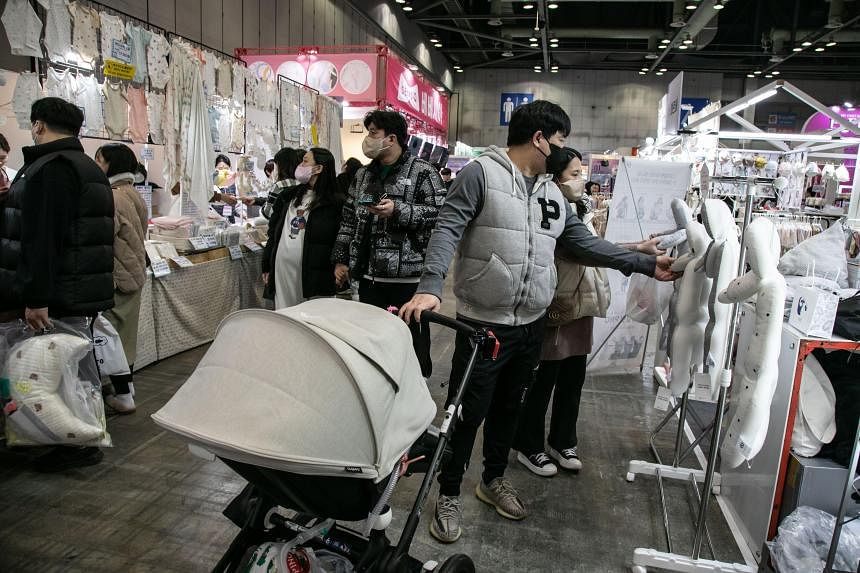SEOUL – Only half of South Korea’s adult population is willing to get married, and fewer than half want to have children in the future, a new survey released on March 17 has shown.
The survey showed that among the 1,059 unmarried respondents – 19 to 49 years old – only 51.7 per cent said they wanted to settle down eventually.
Some 24.5 per cent flatly said marriage was not in their future, while 19.1 per cent said they had yet to decide.
By gender, more men were willing to get hitched than women: 56.3 per cent against 47.2 per cent.
The willingness to get married peaked as men and women reached their 20s and 30s, the poll showed.
Most of those who said they were willing to get married – 58.7 per cent – were between 30 and 34 years old. The percentage dropped for those who were 35 and older.
As for having children, 46 per cent said, “No”.
Only 28.3 per cent were willing to have children.
Among those already married, 46.5 per cent were “thinking of having children”, while 24.7 per cent said they were “not going to have children”.
Among those who were married and had at least one child, 76.1 per cent said they do not plan on having any more children.
There was near unanimous agreement – 93.9 per cent – that South Korea’s declining birth rates is a “social problem”, and they trace the cause of this problem to a “difficulty in combining work and childcare”.
This is affirmed in another report, released by the Korean Women’s Development Institute (KWDI), that highlighted the significant caregiving burden shouldered by women, even in double-income households.
Women spend an average of 11.69 hours per day caring for their children. This exceeds the 7.76 hours contributed by childcare centres, the 4.71 hours contributed by fathers, and the 3.87 hours contributed by grandparents.
“The care of infants and young children, regardless of whether they are working or not, is predominantly provided by the child’s mother, clearly indicating gender inequality in the division of childcare,” the KWDI said in its report.
“To alleviate the burden of care concentrated on mothers, the working environment must be structured to allow both childcare and work to balance out on each other and a reliable level of public care should also be established,” it said. THE KOREA HERALD/ASIA NEWS NETWORK

